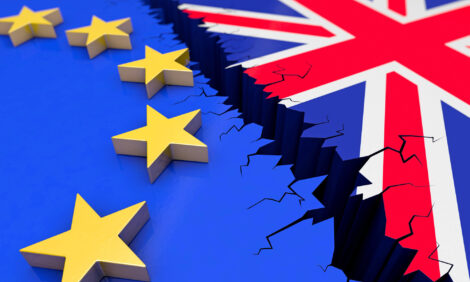



Brexit - laying out a safe path for UK egg producers
The Poultry Site hears from Mark Williams, chief executive officer of the British Egg Industry Council, about some of the most pressing concerns of the egg industry over Brexit.“Britain needs to ensure a sustainable supply of food for the UK market and export. Supporting and developing British farming, and encouraging sustainable food production, will ensure a secure, environmentally sustainable and healthy supply of food with improved standards of animal welfare,” proclaims the UK government on the “Food and farming” policy page on its website. However, achieving this agricultural utopia in a post-Brexit Britain will mean facing up to tough challenges and the reality of food production.
For the egg sector, our main concern with Brexit is its potential to undermine our high standards of food safety, animal welfare and environmental protection by allowing lower-quality imports into the country through trade deals. A recently published independent report, commissioned by the BEIC, demonstrates that 16 percent of the cost of UK egg production stems from legislation relating to food safety, animal welfare and environmental protection. To illustrate this point, there is no national legislation in place in any of the countries outside the EU with whom we would be likely to trade in any future trade agreement. So, does the government pursue trade deals with the USA and India, for example, with no tariffs or quota protection for eggs? That would risk exporting a £1 billion industry and compromising British consumers.
If we combine this with the fact that over time, with new research and science, our level of animal welfare and environmental standards will only further improve, this 16 percent differential could widen, thus making imports more attractive. We therefore have to ask the government to tread carefully in implementing new legislation and understand the associated risks. Not only would there be the potential to export an industry, but we also risk stifling animal welfare, which is a global issue.
While we get caught up in the issue of new free-trade arrangements, we also need to be mindful of what the potential outcome of no deal with the EU could mean. Food inflation would have to be combated and, in an effort to control prices, the government might then look to reduce tariffs unilaterally, allowing food that does not meet the equivalent UK standard onto supermarket shelves.
We also need to maintain access to labour after we leave the EU. Some 40 percent of packing-centre staff and 30 percent of farm staff are foreign nationals and part of the egg industry’s great success story. Since egg production is an innovative sector, automation will, in time, be able to replace some of the roles currently carried out by people. However, this is not an immediate solution and we will never be 100 percent reliant on technology, mainly because continuing to ensure high standards of animal welfare requires excellent stockmen and stockwomen.
One of our opportunities is in public procurement. We feel that this would be a relatively easy win for British food. If the government made a commitment to source British food, it would be a huge boost to public confidence and send farmers the right message – namely, “We are backing you.” There are of course complexities, but we know the government is looking into this and we fully support them in achieving this goal.
For a number of years there has also been considerable political support for better food labelling, but EU rules have constrained our ability to have a more transparent food labelling system. Many products, such as sandwiches and quiches contain eggs from overseas. We believe that British consumers should know where those eggs came from. We saw that the fipronil contamination of foreign eggs in summer 2017 drew media and public attention to the number of egg products that were not made with British Lion eggs (which were not implicated in the scare). We are asking retailers to commit to sourcing more British Lion egg products and are pressing the government to introduce better labelling.
The biggest threat to our industry is from avian influenza, whether we are inside or outside the EU. The benefits in being within the bloc with relation to this is the shared surveillance and expertise membership has provided up to now. We maintain that the UK has some of the best veterinarians and scientists in the world, but we do receive valuable assistance from the EU. The EU reference laboratory for avian influenza and Newcastle disease, for example, is currently in the UK, but this will cease to be the case when we leave. The government has to retain this expertise, though, as losing it would be a backward step for UK agriculture.
Devolved administrations across the UK add to the complexity of the repatriation of laws that emanate presently from Brussels. We cannot risk having a geographically fragmented market, so we call on all UK administrations to understand it is their interests to act as one.
What we, like all businesses, urgently need is some certainty. We are just over a year away from leaving the EU, but we are no clearer on what will happen after the UK withdraws. Uncertainty stifles investment and means that decisions are put on hold. If this much-talked-about transition deal is to be in place from 30 March 2019, we soon need to know what it will contain and how long it will last for.
Beyond the uncertainty, there is hope. We believe that the UK egg industry will increase our current 86 percent self-sufficiency level. We need government to ensure that sensible approaches are taken to the issues of labour availability, trade and legislation to ensure we can maintain our world-leading egg sector.












